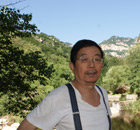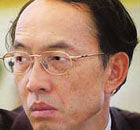Top Stories
Schools to relax hukou rules
By Wang Wei (China Daily)
Updated: 2010-04-16 08:24
 |
Large Medium Small |
Beijing's education authorities released this year's primary and middle schools admission policy on Thursday and pledged that children who don't have a Beijing hukou (residence permit) will enjoy the same access to education as those who do, starting sometime in the next three to five years.
Deputy director of Beijing Municipal Education Commission Luo Jie said that beginning in three to five years, students without hukou can be admitted by schools near their homes and that outstanding students without hukou can be recommended for elite middle schools, as is the case for students with hukou.
"The word equality appears 19 times in the law on compulsory education," he said. "We will try every means possible to ensure non-native Beijing students enjoy equal education opportunities."
At present, migrant workers have to contact middle schools on their own and pay tens of thousands of yuan in "sponsorship" fees to get their children enrolled.
| ||||
Yang, who has worked as a nanny in Beijing for more than 20 years, told METRO that she faces the prospect of wading through the bureaucracy at dozens of middle schools in the hopes that one will admit her son or pay a 40,000 yuan "sponsorship" fee to send him to an elite middle school in Haidian district, while her son's classmates will be able to simply enroll at the nearest school.
"I will go to the education commission again for an explanation," she said.
The number of students without Beijing hukou in the city jumped from 80,000 in 2000 to 430,000 this year. The new rules mean that 80 percent of them will be able to study at public schools in 2012, the Mirror Evening News reported.
Beijing's education commission estimates that primary schools will admit 98,049 students this year, 2,600 fewer than last year, and middle schools will admit 104,448, almost the same number as last year.
Li Yi, director of the commission's division of primary and secondary education, said this year's admission policy is in line with previous years' policies. This year's policy prohibits schools from using training classes and examinations run by, or connected with, the school itself to evaluate potential students, according to Li.
"Our focus will now shift from cracking down on training classes organized by public schools, which we made great efforts to investigate last winter holiday, to dealing with training classes organized by private institutions," he said.









